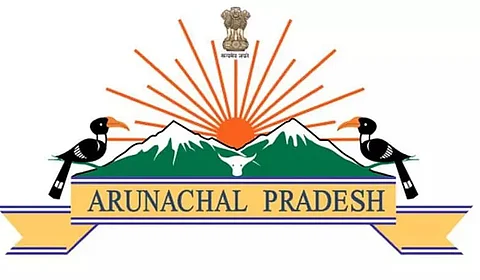
- Home
- Live Blog
- Breaking News
- Top Headlines
- Cities
- NE News
- Sentinel Media
- Sports
- Education
- Jobs

Arunachal Pradesh Cabinet's decision to move a resolution in the State Assembly for seeking Constitutional safeguards for the state has reflected genuine apprehension among the people over limitations of Article 371(H). The contour of the proposed constitutional safeguards which the Arunachal Pradesh Assembly would ask from the Central government will be known only after the draft resolution is moved and adopted by the House. During consultations organized by the Arunachal Pradesh Government with community-based organizations on the issue, suggestions for similar constitutional safeguards as applicable for Nagaland under Article 371A and exploring the provisions of Sixth Schedule of the Constitution came up. The Article 371 A, however, did not settle the issue of rights of Naga people over land and resources. There has been strong disagreement between the Central government and the Nagaland government on interpretations of the provisions under this Article. In 2013, the Central government objected to a resolution passed unanimously by Nagaland Assembly in 2010 in exercise of its powers under Article 371 A(1)(a) rendering inter alia all the Acts of parliament governing Petroleum and Natural Gas inapplicable to the state of Nagaland. Pursuant to this resolution the Nagaland Assembly passed another resolution on September 22, 2012 for framing "the Nagaland Petroleum and Natural Gas Regulations, 2012." The Nagaland Assembly resolution was in the light of the Sub-clause (a)(iv) of Article 371A(1) which says that notwithstanding anything in the Constitution, no Act of Parliament in respect of ownership and transfer of land and its resources, shall apply to the State of Nagaland unless the Legislative Assembly of Nagaland by a resolution so decides. The Central government, however, conveyed to Nagaland government in 2013 that the Assembly resolution passed in 2010 was "unconstitutional and invalid" on the ground that "Article 371A(1)(a) does not confer legislative power to the Legislative Assembly of Nagaland on regulation and development of mineral oil. The power to make law in respect of subject covered under List-1 of the Seventh Schedule of the Constitution, including entry 53 (Regulation and development of oil fields and mineral oil resources; petroleum and petroleum products) of List-1 rests with the parliament, the Central government insisted. The Sarkaria Commission in its report included the Nagaland Government's contention that if the State Assembly decides that a particular Parliamentary law in respect of any of the four matters under purview of the Sub-clause (a) of Article 371 A (1) should not apply to the State of Nagaland, such a matter will fall within the legislative competence of the State Assembly and the State Government will then have full executive power in respect of that matter. The ambiguity in legal interpretation of the competence of Nagaland Assembly to legislate on a subject included in the Union List and within the exclusive domain of the parliament render the "special provisions" of Article 371A an ineffective provision. Arunachal Pradesh government has the realities of such legal complexities of the provisions of Article 371A before it to consider while drafting the resolution for Constitutional safeguards for the state and its people. The special provision under Article 371 provides discretionary power only to the Governor of Arunachal Pradesh with respect to the law and order in the state and does not include any constitutional safeguards for the state and its indigenous communities. It is silent on the land rights of indigenous people of the state. On the question of urging the Central government to place Arunachal Pradesh under the provisions of Sixth Schedule, the State government has the existing territorial councils in Assam, Meghalaya, Tripura and Mizoram to understand that the provisions under this schedule is a power and governance sharing model in the four states. If Arunachal Pradesh is brought under the purview of Sixth Schedule then it will pave the way for constitution of territorial councils enjoying legislative, executive, and administrative autonomy in the state. Entire state of Meghalaya, except cantonment and municipal areas of Shillong is covered by the three autonomous councils in the state under the Sixth Schedule. However, differences in legal interpretations of powers and functions crop up between the Meghalaya Government and the autonomous councils as the councils enjoy legislative, judicial, executive, and judicial powers within their respective jurisdictions. It was highlighted in course of deliberation that the Inner Line Permit regime is only protection the state enjoys currently. But it is limited to only restricting the entry of tourists and other people from other states into Arunachal Pradesh. The threat of indigenous communities being marginalized by influx of migrant population looms large if and, when ILP is withdrawn. Arunachal Pradesh will have the scope of drawing lessons from the complexities in Article 371A or in the provisions of the Sixth Schedule to articulate its own requirement of Constitutional safeguards and pushing for amending Article 371H to incorporate them.